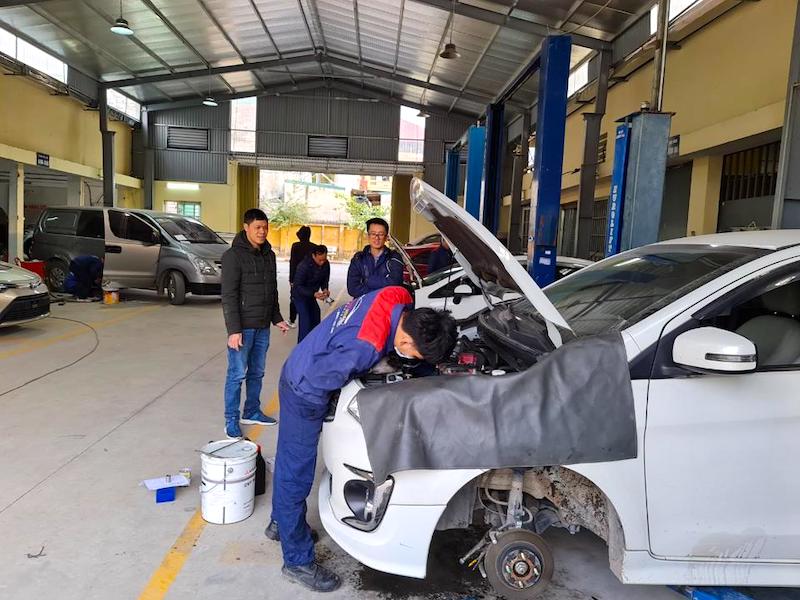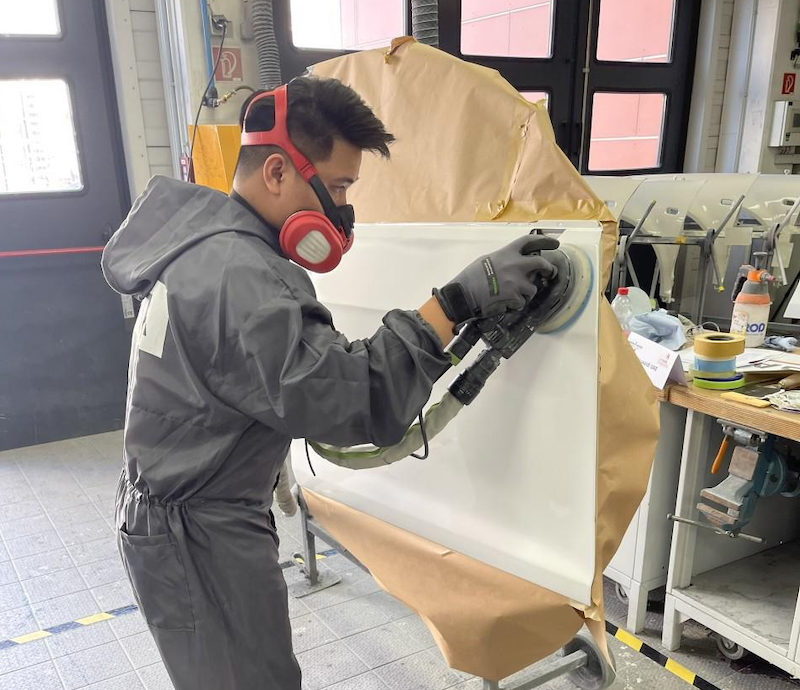Hanoi improves workforce to ASEAN level
The city expects to raise its vocational training to that of the leading regional countries in the coming years.
Hanoi strives to improve the quality of its workforce to catch up with that of ASEAN member states amid integration and rising foreign direct investment (FDI).
| Students of the Vocational School of Transport and Public Works in Hanoi. Photos: Tran Oanh/ The Hanoi Times |
The city's efforts are in line with Vietnam's strategy to improve its workforce through vocational training in key fields which meet ASEAN standards, which involved some of Hanoi's public colleges.
The new training program for key occupations at the ASEAN region level is aimed to train students to become global citizens and equip students with vocational skills, occupational safety skills, soft skills, information technology, and foreign languages that meet market needs.
The training program is developed in accordance with the requirements of local employers and on par with the regional/global level of advanced vocational training.
In the list, the Hanoi Industrial Vocational College has two selected key occupations, including industrial electronics and metal cutting.
Vice Rector of the Hanoi Industrial Vocational School, Nguyen Van Huy, said the content of the training program was built with 30% theory and 70% practice. "The employment rate of those studying key occupations at the ASEAN level six months after graduation is nearly 100% (except for a few studying for higher education). They are hired at the minimum salary of VND12 million ($483) a month," he told The Hanoi Times.
Another selected facility, the Hanoi Public Works and Transport Vocational School, has been running a key vocational training program in automotive technology at the ASEAN level since 2008, according to the school's Vice RectorTran Viet Hung.
"In order to prepare professional training at the ASEAN region level, the school has organized training courses for teachers to improve their professional skills and qualifications," he stressed.
The center has sent teachers to participate in ASEAN vocational training in Malaysia and many other vocational training courses over the years. At the same time, it has also focused on investing in new technological equipment for the automobile industry, he told The Hanoi Times.
"With the launch of the training program, our students have better knowledge and practical skills, initially catching up with the development of the automotive technology industry. In addition, they are able to work autonomously and independently, adapting to work in a short time," Hung said.
Through the activities, it has improved the labor skills in accordance with the new situation, contributing to the development of human resources, especially high-quality ones for Hanoi, the whole country and the ASEAN region.
Qualified workforce to meet the needs of FDI sector
| Vietnam expects to raise its vocational education to the level of top regional countries by 2030. |
As Vietnam promotes the development of skilled human resources which contributes to improving labor productivity and increasing national competitiveness in the new situation, some vocational training institutions wanted to train more key occupations at the ASEAN level.
In addition to the two selected professions, the Hanoi Industrial Vocational School has registered to train in two others at the ASEAN level, namely refrigeration and air-conditioning engineering, and information technology.
With this move, the school hopes to improve the capacity of teachers and teaching efficiency, as well as meet the needs of domestic enterprises and foreign-invested enterprises, Huy said.
Representatives from the vocational training institutions expected that the Ministry of Labor, Invalids and Social Affairs and Hanoi will have more mechanisms and support cooperation between schools in the ASEAN Community and Hanoi, considering it an opportunity for teachers to improve their professional qualifications and to use English in vocational training.
To improve the quality of training and meet the needs of the labor market in the context of regional and international integration, the country will continue to invest in capacity building of the vocational training and education system, especially in the training of high-quality human resources, according to the Ministry of Labour, Invalids and Social Affairs.
It will also propose the construction of regional linkage models and national/regional training centers according to key economic regions in the near future, the ministry said.
According to a strategy to enhance the country’s vocational training in the 2021-2030 period, with a vision to 2045, Vietnam is striving to raise its vocational education to the level of top regional countries by 2030.
Under the plan, the rate of trained laborers with certificates is expected to reach 30% of the total workforce in 2025 and 35-40% in 2030. In 2025, about 40-45% of high school graduates are expected to take up vocational training. Whereas, laborers acquiring information technology skills would make up 80% of the total workforce by 2025 and 90% in 2030.













